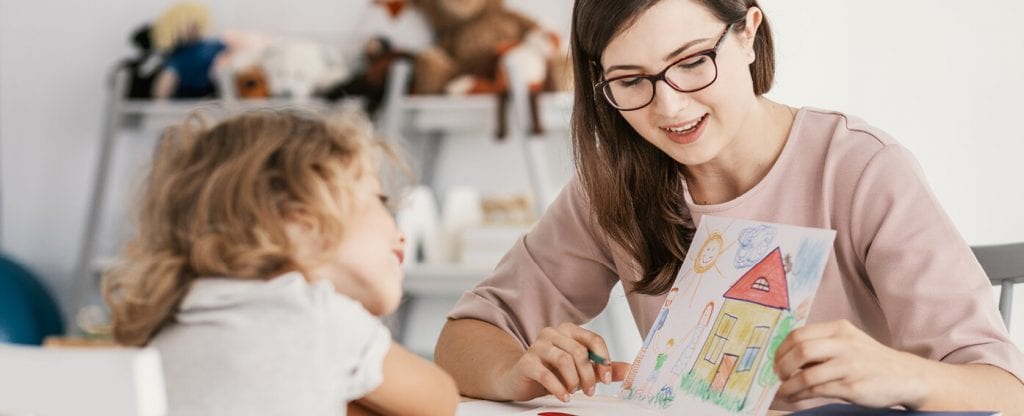How Children are Affected By Divorce
Divorce is a game changer in a child’s life. That we know. It creates significant physical, emotional, financial, and psychological changes. Feelings of loss and separation abound. Sadness and pain of the breakup of their family unit, the anger they feel that often gets expressed either internally (stomach aches, headaches) or externally (through behavior problems, acting out) are very common.
Children struggle to adjust to living without one parent every day, as they shuffle between two homes, splitting and sharing their time. They are often caught in the middle of potential conflicts between their parents, enduring at times economic hardship, broken bonds with a parent, loss of emotional security and stability, and multiple emotional stressors. They do this while hanging on tight as they ride the emotional roller coaster of the inherent ups and downs and uncertainties of their life. Of their parent’s divorce. It’s a new life they never asked for but for one they have no choice to endure.
Long term, children of divorce are more aggressive towards their teachers and parents. They are more often referred for psychological help due to heightened anxiety and depression, struggle to get along with their peers, and more likely to divorce themselves (Wallerstein, 2000).
Yet, although divorce affects a child’s world in impactful ways, there are many things that parents can do – individually and collectively – to help them navigate this major change in their lives in positive and healthy ways.
Preschool Children
This is a very sensitive developmental stage for preschool children. They have developed a strong attachment to each parent, but young and vulnerable to possible breaks in attachment and a fear of abandonment because family means everything to them. It is common for many children to fanaticize that their parents will get back together again. They are aware of what is happening.
And although they understand many things, they do not fully understand or grasp the meaning of divorce and often react with confusion. This may be demonstrated through thinking if one parent left, maybe the other one will leave, too. Or, thinking they are to blame for their parents break up (thinking they did something wrong or if they behaved better, then their parents would still be together). They will search for an explanation for what they know best – their own thoughts and experiences.
Possible effects of divorce are:
- An increase in separation anxiety with more clingy behavior, and/or an increase in anxiety about losing a parent.
- May become more fearful in general.
- Resistance to being apart from one or both of their parents.
- Group negative emotions together (sadness and anger may feel the same).
- The emergence of attention seeking behavior.
- Regression or loss of developmental skills previously mastered.
- Asking the same questions repeatedly because they are struggling to make sense and understand what is happening (for example, Where will I sleep? Will I go to the same school? Will I have the same friends? Where will all my toys go?)
What parents can do:
- Offer stability and a predictable routine. The use of a calendar is a positive way to help your young child, so they can anticipate visits with the non-resident parent helping them to feel more control and consistency over their environment.
- Reassure them that things will be ok (even if in the moment it doesn’t feel that way).
- Spend quality 1:1 time by reading, playing and cuddling together.
- Maintain consistent communication with the non-resident parent.
- Provide a safe space for your child to express their thoughts and feelings.
- Maintain your own self-care by having a healthy lifestyle and having a support system to share your thoughts and feelings.
School-age children
During this stage of development, elementary-aged children have begun the process of figuring out who they are and their own identity with a focus on building their self-esteem. Despite the divorce, their relationship with the other parent is critical in how their view themselves and maintaining that relationship. They also have a greater understanding of their parent’s divorce. However, this can increase their feelings of sadness and loss because they are better able to grasp the depth and the full implications of their parent’s divorce. Many may also have second-hand knowledge through their friends at school who are experiencing something similar. They are more prone to getting their feelings hurt by negative words expressed by their peers as they deeply value their family unit as it’s an extension of their own identity and divorce makes them feel betrayed by their parents. Yet, they continue to hope their parents will reconcile.
Possible effects of divorce are:
- Worry more about the emotional well-being of their parents and internalize their sadness and anxiety especially when they are with one parent and the other one is alone.
- Feel personally rejected by the divorce.
- Worry about money, living arrangements and how well (or not) their parents are getting along.
- Feel shame around their parent’s divorce.
- An increase in anger, often overt, towards their parents especially if they feel that one parent is to blame for the divorce.
- Difficulty concentrating on schoolwork while being preoccupied with their family and the separation/divorce process.
What parents can do:
- Ensure your child has someone to speak to about how they feel (therapist, school counselor, family member or friend).
- Inform the school of the current situation so the teachers can watch for signs of acting out or a dip in their grades.
- Keep them informed (to a large degree) on what is going on and talk to them about any impending changes with schedules. This will help them feel they are being kept in the loop and that in some ways, the family is still intact.
- Speak to them how the family is changing and what their new family will look like. This could be creating new family traditions or habits after the divorce.
Adolescents
Developmentally, adolescents are more independent, relying more on friends for support and guidance than younger children, they are still dependent on their parents emotionally, physically, and financially. Yet, they are just as affected by their parent’s divorce as younger children but are affected in different ways.
Possible effects of divorce are:
- They may act out more aggressively and in defiant ways that create greater distance with a stronger determination to live ‘his or her life in their own way’, with greater self-interest. They may disregard discipline and start taking care of themselves more.
- May try and get back at their parents, as this is a way of expressing their anger, fear, and disappointment at their parents. They may also not want to follow their advice due to a break in trust.
- Act ‘cool’ and say the divorce doesn’t affect them (as a way to hide their true feelings of sadness and loss) because they are often confused and angry by what their parents did, what they saw, and how they were told they should behave.
- Start to question their future that once felt more secure, asking, should I go to college, leave home, get married, and worry if one parent is sad and depressed.
- Experience greater insecurity as they navigate their own way to adulthood because divorce has taught them to be skeptical of trust and loyalty and may struggle to maintain their own close relationships.
- Act out in dangerous and destructive ways such as delinquency, drug or alcohol abuse, or sexual promiscuity.
- Worry about money or be concerned they will not be able to do the things they have been doing.
- Find faults of their parents and pick sides during the divorce.
- Attempt to fill the role they perceive to be filled by one of their parents. Unfortunately, some parents allow this to happen and place the older child in the role of the parent (‘the man of the house’) well before they are developmentally, emotionally, and psychologically ready (often referred to as being “parentified”).
What parents shouldn’t do:
- Do not speak negatively about your ex-spouse in front of them, keeping in mind that they will always be the mother or father of your child. Doing this only creates greater confusion, stress, and anxiety for them. Find other resources (family and friends) to manage your negative feelings.
- Do not use your child as a messenger by giving them information to communicate with your ex-spouse (money issues, custody, visitation, personal anger).
- Do not use them as a weapon in the divorce battle by putting them in the middle or asking them to take sides.
What parents can do:
- Continue to maintain and nurture your relationship with them.
- Take care of yourself emotionally, physically, and psychologically.
- Encourage support by including extended family and other positive people in their life to help them so they feel less alone and have someone to talk to outside of their parents).
- Maintain routines as much as you are able to. This will help provide consistency and help them feel safe.
- Create a few new habits to help them transition. This will give them a sense of control and ownership and will also help to create resiliency.
- Listen to them. Give them the time they need to talk and process their feelings. Don’t judge and feel they should be further along they are.
- Don’t have lofty expectations just because they ‘appear’ to be doing fine or you think they can handle more information (as they often cannot but will not tell you that because they don’t want to burden you more.
- Create healthy conversations that include them and talk with them, not at them.


At the end of the day, one of the most important things that you can do as a parent is to simply talk with and listen to your child. They need to know that you are emotionally and physically available for them as this will provide them with a safe place to share their feelings, which will better equip you to understand what exactly is bothering them.
Finally, as a parent, it’s imperative that you work through your own negative emotions with friends and family and not use your child or children as a sounding board as this will only prolong their adjustment and increase their distress. Being able to speak positively about your ex as this is your child’s parent speaks volumes and will have a positive long-lasting effect on their overall health and well-being both now and in the future.
©2011-2025 Worthy, Inc. All rights reserved.
Worthy, Inc. operates from 25 West 45th St., 2nd Floor, New York, NY 10036
